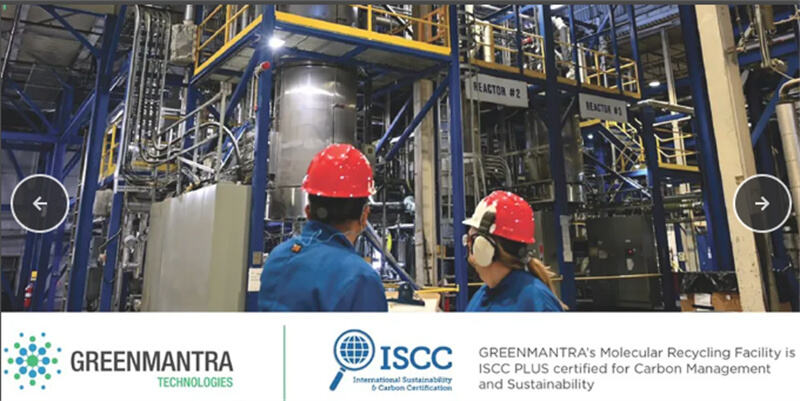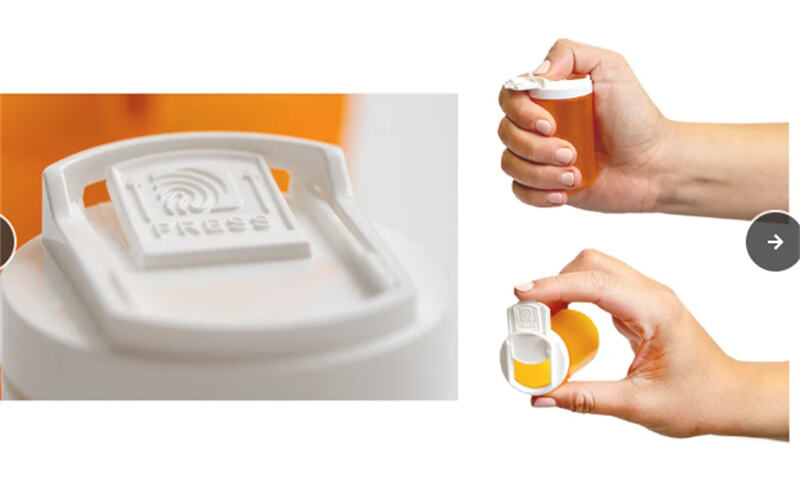Sustainable Innovation in Materials: GreenMantra Technologies
PLASTICS chose PureCycle as winner of the design award for its development of PureFive resin, which “closes the loop on recycled plastics while making recycled polypropylene more accessible at scale,” said the industry association.
As noted previously in PlasticsToday, PureCycle’s recycling technology was initially developed by Procter & Gamble to transform polypropylene (PP) plastic waste into a continuously renewable resource. The unique purification process removes color, odor, and other impurities, turning No. 5 PP plastic waste into an ultra-pure recycled (UPR) plastic that can be recycled and reused multiple times.
In 2024, PureFive resin was successfully used in fiber, injection molding, and thermoforming applications, said PLASTICS.
Earlier this month on April 23, PureCycle reported on trials involving the use of PureFive resin in industrial biaxially oriented polypropylene (BOPP) film. The trials were conducted by Brückner Maschinenbau GmbH in Siegsdorf, Germany, with blends ranging from 15% to 50% of PureFive resin, as pictured. The film was successfully extruded at Brückner’s German facility and performed similarly to virgin PP on multiple tests. Initial stretch tests appear promising, with additional stretch testing scheduled for later this month, said PureCycle.

GreenMantra Technologies earned the materials award for its Ceranovus specialty polymer additive, which is molecularly engineered through a proprietary process that breaks down long carbon chains in recycled polyolefin plastics into tailored shorter-chain polymers and waxes. The resulting functional additives enhance product performance, improve manufacturing efficiency, and drive greater sustainability, according to PLASTICS.
GreenMantra stresses the material’s proven commercial success in roofing, paving, and drainage pipe applications, along with its environmental and market benefits, as examples of how its innovation is reshaping how recycled materials can be used in critical infrastructure.
Described as the first commercially scaled molecular recycling technology that can be seamlessly integrated into existing manufacturing processes, Ceranovus “enables industries to incorporate more recycled content while maintaining — or even improving — material quality,” added PLASTICS.

The Greyparrot Analyzer is an AI-powered waste analytics system that revolutionizes plastic recovery by providing real-time data on material composition in sorting facilities, writes PLASTICS. The system uses advanced computer vision technology to identify and categorize waste on conveyor belts, enabling operators to optimize in-feed blends, improve product quality, and reduce residue loss. 140 units deployed across 55 facilities globally have resulted in the identification of millions of dollars in recoverable plastics previously lost to landfill, according to PLASTICS.

The Leadership in Sustainability Innovation award goes to the company with the best overall score across the three previously cited categories. The 2025 recipient is Plastipak, which PLASTICS recognized for its PPK Natura material.
PPK Natura utilizes CarbonSmart monoethylene glycol (MEG), a technology derived from waste carbon emissions through a proprietary carbon capture and transformation (CCT) process, explains PLASTICS. In this process, industrial carbon emissions — such as those from steel mills or other carbon-intensive industries — are captured and converted into ethanol. The ethanol is then processed into MEG, a key building block for PET resin. MEG is combined with terephthalic acid to create PPK Natura, a high-performance PET resin with the same properties as virgin fossil-based PET. The result is a fully recyclable material that retains the technical integrity required for a variety of packaging applications.
In keeping with its commitment to sustainable packaging applications, Plastipak made a donation in March of this year to the Michigan State University School of Packaging (SOP). The donation will be used to support an expansion of the SOP building — a mockup is pictured here — doubling its current size and significantly increasing research capacity.

The RX Vial developed by SnapSlide garnered the 2025 People’s Choice award because it “redefined pharmaceutical packaging by combining child resistance with one-handed accessibility — an industry first,” said PLASTICS.
Developed as an alternative to conventional push-and-turn mechanics, SnapSlide’s slide-to-open/close technology improves access to medications for more than 60 million Americans with some form of dexterity issue, including arthritis, fibromyalgia, multiple sclerosis, and Parkinson’s disease, explains SnapSlide. In addition to providing enhanced accessibility, the product’s patented design delivers substantial sustainability benefits, using over 25% less plastic than conventional prescription packages and providing 30% greater efficiency in shipping and distribution, according to the company.

